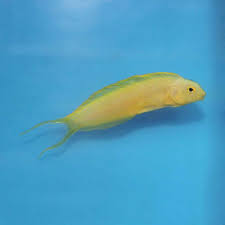
The dragon, a revered and powerful symbol in Chinese culture, has long been associated with divine protection, strength, and spiritual power. In Chinese mythology, dragons are not just mythical creatures; they are believed to be guardians of both the physical and spiritual realms. The dragon’s role as a protector has deep roots in ancient Chinese beliefs, folklore, and religious traditions. This article explores the reasons why the dragon is seen as a guardian deity in Chinese mythology, examining its cultural significance, symbolism, and the various ways it is depicted as a protector across different mythological stories and spiritual practices.
1. The Dragon as a Symbol of Protection in Chinese Culture
In Chinese culture, the dragon is often viewed as a symbol of imperial authority, wisdom, and protection. The association between the dragon and protection can be traced back to ancient times, where it was believed that dragons had the ability to ward off evil spirits, protect the realm, and bring harmony to the natural world. This belief in the dragon as a divine protector has made it a central figure in Chinese art, folklore, and religious rituals.
1.1 The Celestial Dragon and Its Role in Guarding the Heavens
In Chinese cosmology, the dragon is one of the four celestial animals that symbolize the forces of nature: the dragon, the tiger, the phoenix, and the tortoise. These creatures are thought to protect the balance of the universe, with the dragon specifically representing the east and the power of the wood element. The dragon’s role as a celestial being ties into its guardianship of the heavens, where it is believed to guard the gates of heaven and protect the gods and spirits from malevolent forces.
The image of the dragon in Chinese mythology is often associated with cosmic power, such as controlling the weather, storms, and the flow of water. It is seen as a creature that can move between the realms of humans, gods, and spirits, acting as a protector and intermediary between these worlds. As a result, dragons are often depicted as protecting sacred places like temples, palaces, and shrines.
2. The Dragon in Chinese Creation Myths
One of the most important reasons the dragon is viewed as a guardian deity in Chinese mythology is its prominent role in the creation myths of ancient China. These stories reflect the belief that dragons were among the first beings to emerge at the dawn of creation and were tasked with guarding the natural and spiritual order.
2.1 The Dragon’s Role in the Creation of the World
In one of the most famous Chinese creation myths, Pangu, the first living being, is said to have emerged from an egg and separated the heavens from the earth, creating the universe. According to some versions of the myth, the dragon played a key role in helping Pangu in his task of shaping the world, symbolizing the cosmic forces that governed the universe. The dragon’s strength and power were essential in the creation of the earth, and it is often depicted as a protector of the newly formed world, ensuring that it remained in balance.
The dragon’s association with the creation of the world reflects its connection to cosmic power, fertility, and life itself. In many ways, the dragon is viewed as a divine being with the responsibility of protecting the natural order and ensuring that it thrives. As a result, dragons are revered as guardians of both the physical and spiritual realms, with their protective powers extending over all forms of life.
2.2 The Dragon as a Protector of the Emperor
The dragon’s role as a guardian is most notably seen in its association with the emperor of China. The emperor, often referred to as the “Son of Heaven,” was considered the earthly representative of the gods. As such, the emperor was believed to be protected by the dragon, which symbolized his divine authority. The emperor’s throne, robes, and imperial seals often featured dragon motifs, which were thought to offer protection and symbolize his role as the ruler of all under heaven.
In ancient China, the emperor was seen as the guardian of the people and the land, and his ability to rule effectively was often associated with his relationship to the dragon. The imperial court was full of dragon imagery, and the emperor’s palace, as well as other important government buildings, were often decorated with dragon symbols to invoke the protection and power of the dragon. In this way, the dragon became a symbol of the emperor’s authority and his divine right to protect the nation.
3. The Dragon as a Guardian in Chinese Folklore
Beyond its role in creation myths and imperial symbolism, the dragon is also a prominent figure in Chinese folklore, where it is often depicted as a protector in various stories. The dragon’s ability to safeguard people, cities, and even entire nations from harm is a common theme in Chinese mythology and folklore.
3.1 The Legend of the Dragon’s Protecting Power
In Chinese folklore, dragons are frequently portrayed as benevolent beings that protect humans from evil forces, such as demons, monsters, and other malevolent spirits. These dragons are often depicted as wise and noble creatures, willing to use their power to defend the righteous and uphold justice. For example, in the story of the Dragon King, the dragon is a celestial being who rules over the seas and is believed to control the weather. In this myth, the Dragon King helps protect the people from droughts by summoning rain, ensuring that crops grow and the land remains fertile.
The protective role of the dragon is not limited to the protection of physical spaces; it also extends to the spiritual well-being of the people. Dragons in Chinese mythology are often invoked to ward off evil spirits and negative energies, ensuring the prosperity and health of the community. This association with spiritual protection has made the dragon a powerful and revered figure in Chinese culture.
3.2 The Dragon as a Guardian of Sacred Places
Dragons are also thought to serve as protectors of sacred spaces, such as temples, shrines, and burial sites. In many ancient Chinese myths, dragons are believed to guard sacred mountains or other holy sites, where they protect the area from intruders and evil spirits. These dragons are often depicted as celestial beings who possess great wisdom and are entrusted with the responsibility of safeguarding important places of worship or burial.
In Chinese temples and shrines, dragons are frequently represented in statues, paintings, and carvings, often positioned at the entrance to ward off evil and provide protection to those who enter. The dragon’s association with sacred spaces highlights its role as a guardian deity, tasked with maintaining the spiritual and physical integrity of important locations.
4. The Dragon’s Protective Powers in Chinese Medicine and Feng Shui
The dragon’s role as a protector extends beyond folklore and mythology and into practical aspects of Chinese culture, such as Chinese medicine and feng shui. In both of these areas, the dragon is seen as a powerful symbol of vitality, protection, and balance.
4.1 The Dragon in Chinese Medicine
In traditional Chinese medicine, the dragon is often associated with life force, vitality, and healing energy. The dragon’s protective role is thought to extend to the human body, where it symbolizes the protection of health and the maintenance of balance within the body. The dragon is sometimes used as a metaphor for the qi (vital energy) that flows through the body, with the idea that the dragon’s power can help restore balance and protect individuals from illness.
The use of dragon imagery in Chinese medicine can be seen in various healing practices, such as acupuncture and herbal medicine, where dragon motifs are used to represent the protection and restoration of health. The dragon’s role as a protector of physical and spiritual well-being is reflected in these practices, which aim to preserve harmony and balance within the body.
4.2 The Dragon in Feng Shui
In feng shui, the ancient Chinese practice of creating harmony between humans and their environment, the dragon is seen as a powerful force that can bring protection and good fortune to a space. The dragon is often used in feng shui to enhance the flow of qi and protect the inhabitants of a building from negative energy. It is believed that the dragon’s presence in a home or office can provide protection from harm, promote prosperity, and create a positive, harmonious atmosphere.
In feng shui, the dragon is often placed in specific areas of a home or workplace to maximize its protective powers. For example, placing a dragon statue in the eastern part of a home is thought to encourage growth and vitality, while a dragon placed in the southern part of a space is believed to bring good fortune and success.
5. Conclusion
The dragon’s status as a guardian deity in Chinese mythology is deeply embedded in the culture, beliefs, and practices of the Chinese people. From its role in creation myths and its association with imperial authority to its presence in folklore, Chinese medicine, and feng shui, the dragon is considered a powerful protector that guards both the physical and spiritual realms. Whether it is safeguarding the heavens, defending sacred places, or ensuring the well-being of individuals and communities, the dragon’s protective powers are an essential aspect of Chinese mythology and cultural identity. Its enduring significance as a guardian deity continues to shape Chinese cultural practices, making the dragon one of the most revered and powerful symbols in the world.









